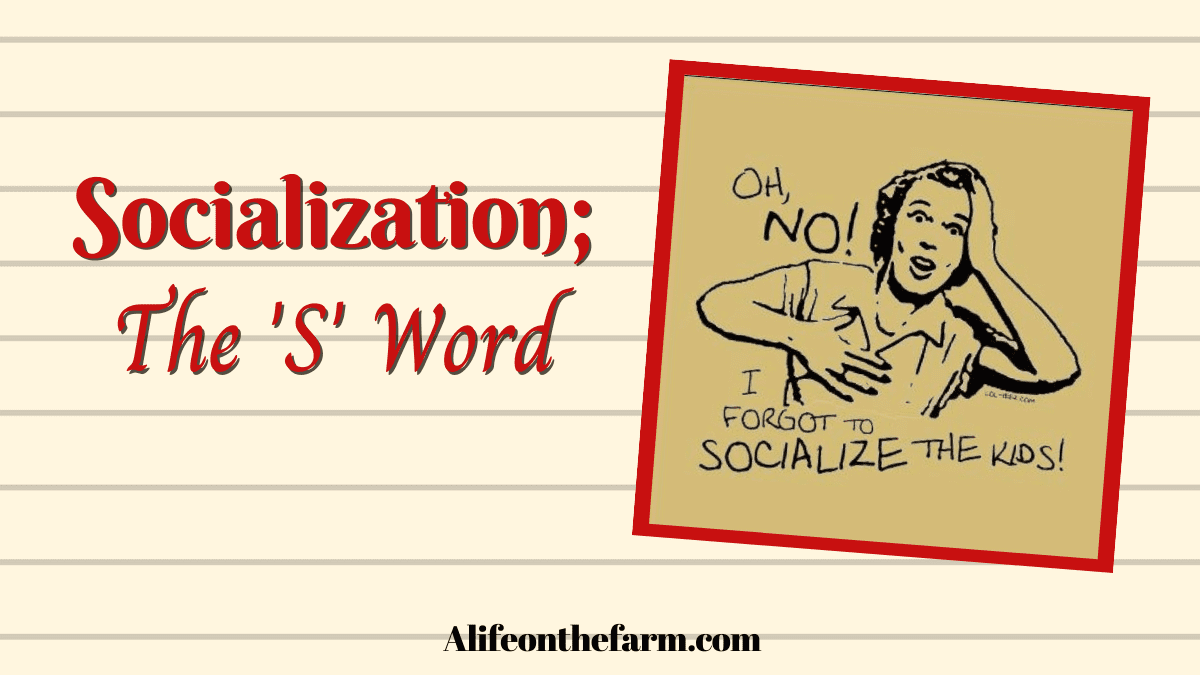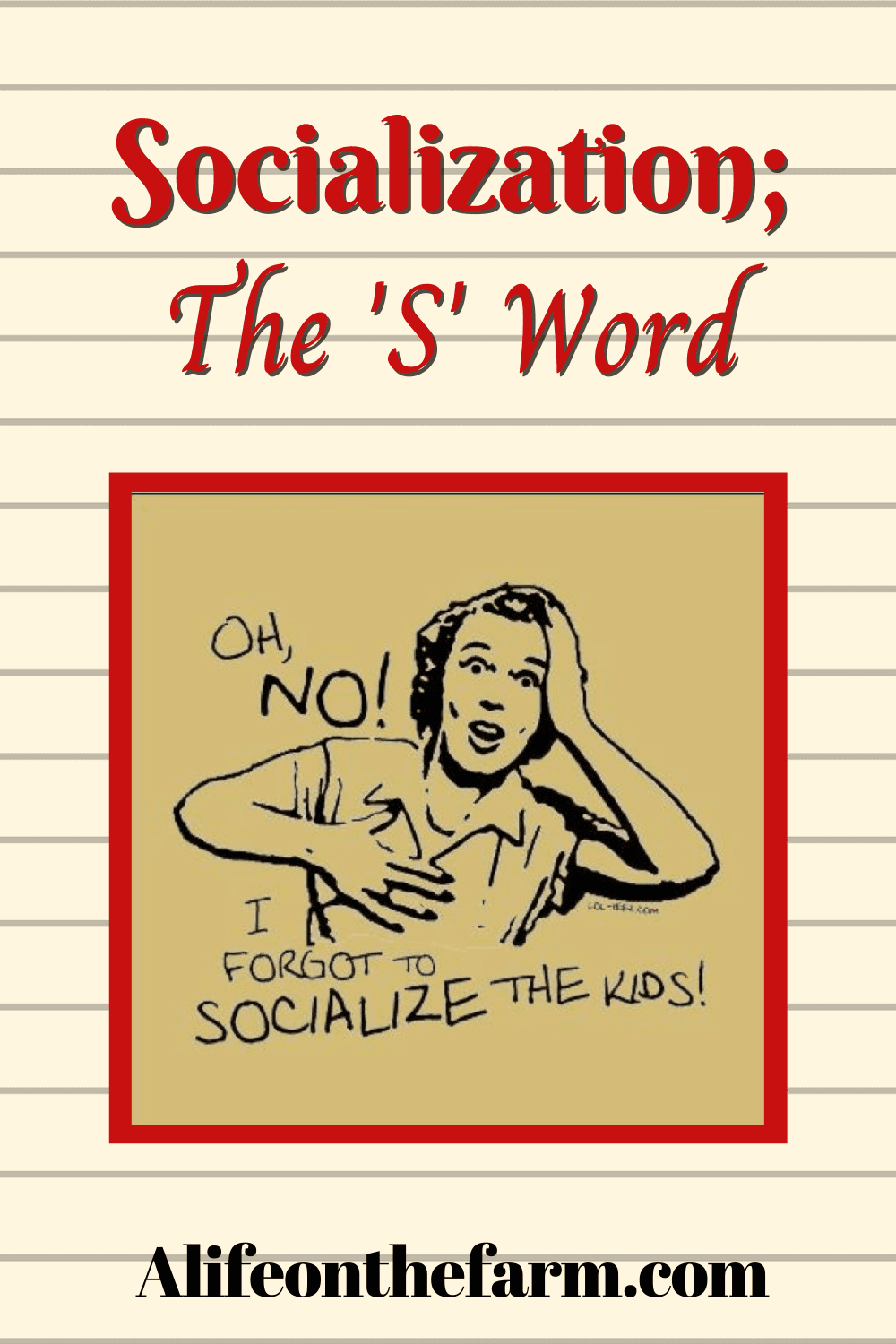Answering the Socialization Question – Specifically Homeschool Socialization
As a Homeschooling mom, for over 2 decades now, the most frequent questions or comments that I get are concerning socialization.
“Aren’t you worried about Socialization?”
“What do you do about socializing your kids?”
It is a topic that every homeschooling parent has to handle …and most homeschool parents, including myself, honestly just roll our eyes… then smile.
What is Socialization?
As a society, we have become conditioned to very specific things. Things that are determined to be the ‘norm’ just because that’s what most people do. ‘Socialization’ is one of those terms that people have come to assume can only be done in one way.
Dictionary.com states that socialization is “A continuing process whereby an individual acquires a personal identity and learns the norms, values, behavior, and social skills appropriate to his or her social position.”
The Free Dictionary states that socialization is ” To cause to accept or behave in accordance with social norms or expectations.”
Looking at these two definitions, I find it difficult to believe that a caring, thinking person would be okay with that for their children. First of all, ‘social skills appropriate to a specific social position’?
Children should be empowered to develop and fit themselves into the position that they choose, not the position that society determines. They certainly should not have to try to fit in to social expectations, especially when you consider the turn that society has taken.
A Few Points to Consider Regarding Homeschool Socialization
Socialization has long been a hot topic when it comes to arguing public school versus homeschool, however, the argument typically boils down to whether children are interacting with other people (other kids is really what is meant). With that in mind, there are a few points that should be considered concerning homeschool socialization.
Point Number 1
Most children who are homeschooled come from large families, therefore they have a variety of siblings with which they interact on a regular basis.
Point Number 2
Most homeschool families are involved in homeschool groups or cooperatives where the children learn together to a certain extent and get together for field trips, events and activities.
Point Number 3
Most homeschool families are heavily involved in additional activities outside of schoolwork like church, 4H, sports teams, martial arts, music and art classes, service projects, apprenticeships and more.
Point Number 4
Homeschooled children learn and live a life of constant interaction with people of all ages, while public schools operate on a basis of age segregation. As a business owner for many years, I have had to interview young adults who were looking for jobs; adults who simply had no clue how to interact with me.
I see it on a daily basis. My homeschooled children have all been able to carry on intelligent conversations with people of all ages from the time that they could fully speak. At the same time, their publicly educated friends had trouble even responding to me or looking me in the eye. This is a glaring difference almost fully across the board.
Socialization and Behavioral Issues
Dr. Larry Shyers, in a 1992 study for his doctoral dissertation at University of Florida’s College of Education, “Comparison of Social Adjustment Between Home and Traditionally Schooled Students,” discovered that home-schooled children had consistently fewer behavioral problems than public school children.
The study indicated that home-schooled children behave better because they tend to imitate their parents while conventionally schooled children model themselves after their peers. Shyers states, “The results seem to show that a child’s social development depends more on adult contact and less on contact with other children as previously thought.”
J. Gary Knowles, University of Michigan Assistant Professor of Education, released a study done at the University of Michigan-Ann Arbor. The Associated Press article entitled, “University Study Says Home-Taught Children Won’t Become Social Misfits,” appearing in the Grand Haven Tribune 9 March 1993 found that teaching children at home will not make them social misfits.
He studied 53 adults who had been homeschooled. Nearly two thirds were self-employed. He stated, “That so many of those surveyed were self-employed supports the contention that homeschooling tends to enhance a person’s self-reliance and independence.”
Homeschool Socialization is Protection from the Negative
“The greatest benefit from homeschool socialization is that the child can be protected from the negative socialization of the public schools associated with peer pressure, such as rebellious attitudes, immaturity, immorality, drugs, and violent behavior.
The Right Choice: Home Schooling by Christopher J. Klicka.
Homeschooled Students Score Better in a Variety of Areas
There have been many studies over the past few decades demonstrating that homeschoolers score better than their publicly educated counterparts, such as ‘Research Facts on Homeschooling’ by Brian D. Ray, Ph.D. The study states that the home-educated typically score 15 to 30 percentile points above public-school students on standardized academic achievement tests.
In that same study, it is found that homeschooled children are “typically above average, on measures of social, emotional, and psychological development. Research measures include peer interaction, self-concept, leadership skills, family cohesion, participation in community service, and self-esteem.”
Practical Evidence and Examples Concerning Homeschool Socialization Outcomes
In writing this article, I wanted to make sure that I acquired input from good sources other than myself. First, I will explain that in our homeschool, it is a requirement of mine that my children all take a course at our local technology center during high school. At the very minimum, this gives them the opportunity to have a trade that can offer a career.

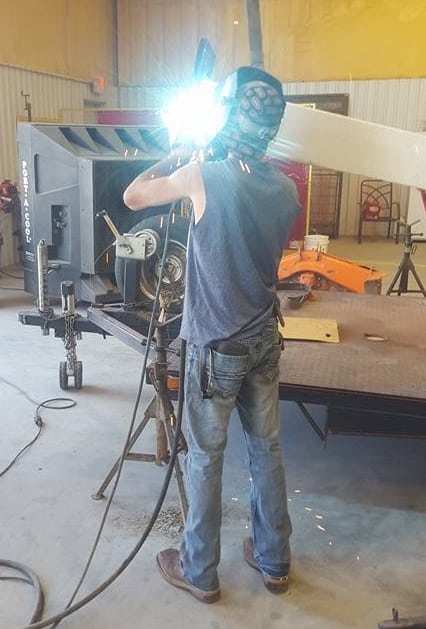

Homeschool Socialization Case 1 – Christian Stewart-Smith
My oldest son, Christian, who is currently 26, having graduated at age 16, chose to take welding and became a very proficient welder. He has worked in his field quite a bit. However, he went on to be self-employed, opening his own construction company. He also plans to add welding and fabrication in the future. (By the way, he got his start in construction from me, during his homeschooling.)
I asked him if he felt like his homeschooling helped to set him on the path of success that he has achieved. His response was that he “felt like the homeschooling helped him academically and allowed him the free time to start working early.” (He actually began working for neighboring ranches at age 12)
He also stated that he “feels like the homeschooling was a good stepping stone to gain the knowledge and experience he needed to be successful”, adding that he felt like it ‘added to his self reliance and independence”.
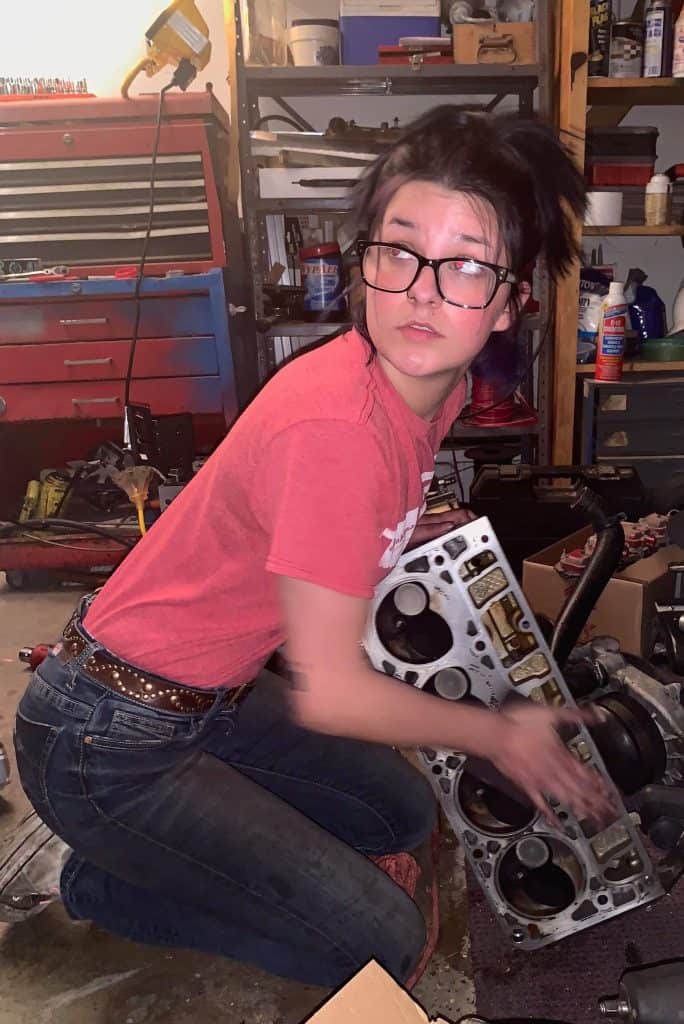
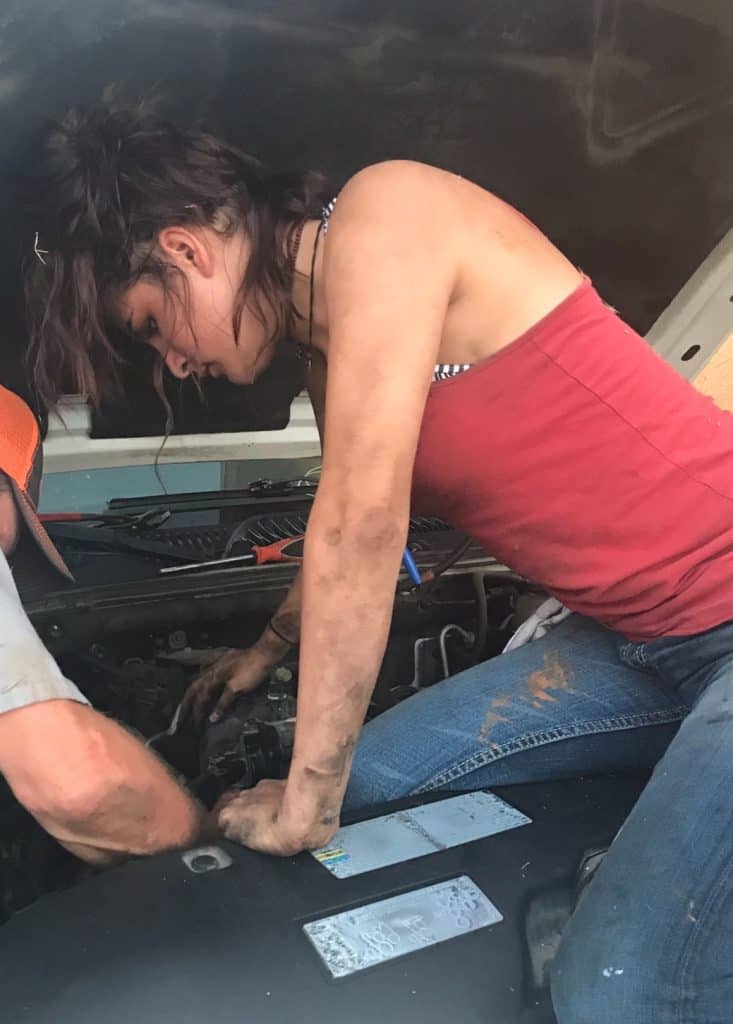
Homeschool Socialization Case 2 – Paxton Stewart-Smith
My daughter, Paxton, who is currently 21, graduated at age 17. She chose the automotive course at Southern Tech. She immediately went to work in her field of training. Her case is a little bit different. When she was 12 years old, I deployed to Afghanistan and she and her little brothers were left to be cared for by their father.
As soon as I left the country, he put them into public school which proved to be very harmful in the end. I tell you that so that you will understand her point of view. She experienced both homeschool and public school and has strong feelings about it. The following are my questions and her answers.
What do you consider your biggest benefit in homeschooling?
My biggest benefit from homeschooling is the pace I was able to work. It was more relaxed than public school, in my short time of experience there. Being more relaxed and comfortable with your surroundings makes fully focusing on learning not so hard.
When you suddenly went from homeschool to public school, what was the result? What do you recall from that experience emotionally?
The change from homeschool to public school was like being thrown into the wild. I was out of place with other students my age. I was more confident and mature than they were. It began with me being very distant from the other kids, then I was the life of the party and things were okay.
But my home life was also drastically changed (mom at war). I feel like my home life really affected my public school experience. My grades fell, I got into trouble all the time. I stopped caring about my education. Then the failed classes made my home life worse. It was a circle that would’ve continued had I not gone back to homeschooling. I was able to get back to being myself; motivated and eager.
Did you have more positive influences during homeschool?
Well, That’s a tough question. I have to say yes because I didn’t have a negative influence during my homeschool career. I was surrounded by family and learned valuable lessons that would not have been taught at any public school. My education was fit to my personality and learning ability. The same for each of my siblings. I think we all really benefit from that.
Did your homeschooling give you a good base for adulthood?
Homeschooling gave me a good base for life in general. When I compare my experience with public school to my experience homeschooling, I see all of the bad habits that I learned in public school. If I’d never been involved with homeschool I’d be failing as an adult along with the majority of my generation.
Did your public school years have a positive or negative effect and can you give an example?
Public school negatively affected the part of me that I allowed it to. I was never happy there, so it only intensified my feelings of resentment. It brought out the worst in me. I was angry and stressed all of the time, I felt like going from room to room listening to different people talking was mundane. Then I lost my interest in knowledge.
How did the peer groups in public school affect you?
My peers in public school were more of just annoyances. I knew right from wrong at an early age. I didn’t fall into peer pressure until I had been in that situation for quite some time. Being able to recognize and avoid those pressures was something I had to learn for myself once I got back out of public school.
Could you feel the difference between peer pressure and the lack of peer pressure?
I didn’t know what peer pressure was! I didn’t typically hang out with people who used peer pressure. So, entering that environment was pretty crazy. I felt the daily pressure. Then, going home, the lack of peer pressure, which was just normal at home, felt like a weight lifted. You don’t really feel a lack of something until you’ve felt the weight of it. So, yes the lack of peer pressure was an intense change.
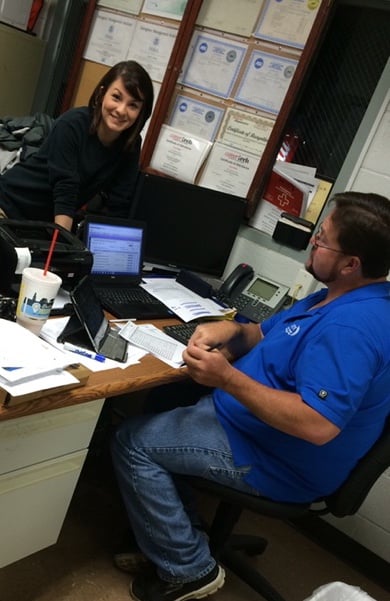

A Teacher’s Point of View
I also spoke with, Scott Webb, Paxton’s Auto Services Instructor at Southern Tech to gain his insight on the matter. He has had several homeschooled students in his classes over the years. The following are the questions, concerning Homeschool Socialization, I posed along with his answers.
I am wondering your initial observations of the homeschooled students versus what you learned as time went by.
The majority of homeschooled students I have had in my class seemed very quiet and shy at first. Over time, the reality was that these students were not shy, it just took them a little while to feel comfortable in the larger group setting.
What differences did you see in the homeschool versus public school kids?
The biggest differences I observed were that my homeschooled students tended to be more respectful of adults and more willing to comply with the rules. My high school students were more likely to resist certain rules and activities. One area where my homeschooled students struggled compared to their high school counterparts was on the certification test process. I attribute this to my high school students having more experience with standardized testing, but that is just my opinion.
The socialization question is very interesting. In my experience, the homeschooled students struggled to relate to the other high school students. Your daughter was an exception to this issue. She related well with almost everyone, but excelled in dealing with adults. My other homeschooled students have also demonstrated good skills in dealing with adults.
I do think that peer pressure can be an issue for homeschooled students when developing relationships with high school/Common Ed students. I think there is a lot of pressure to fit in that can influence the homeschooled student to change their behavior to conform with their counterparts. In my experience, I definitely see a higher percentage of my homeschoolers who go directly into the trade they have completed training in. I attribute this to a higher family focus on preparing for a career.
Conclusion – One Mom’s Take on Homeschool Socialization
As a homeschooling mom for over 2 decades, what it boils down to for me and my family is that what some see as a negative, I find to be a positive. Where some people complain that my children are not active enough with their peers at a school, I feel that my children are able to learn more without peer distraction.
When people complain that my kids don’t get to be involved in the local high school athletic or art programs, I simply roll my eyes and smile…while I am on my way to take my kids to their Jiu Jitsu classes and tournaments, or their homeschool group classes or field trips, or their church functions… and the list goes on.
I fully believe that the ‘devil in the details’ is the TYPE of influences that surround a child during their developmental years. Childhood is the time in a person’s life when they are the most easily influenced. They are learning from their surroundings. Therefore, if their surroundings are negative, we can expect them to learn and emulate those qualities.
Quality socialization is not how many people you know or hang out with. It is the quality of relationships that are developed as well as the impact of those relationships.
You may also like to have a look at some of my other homeschooling related information.
MORE WAYS TO CONNECT
We also, as a homesteading family, have three additional blogs that might interest you. Two Oaks Farm Talk concerns the more technical side of homesteading. We discuss subjects like gardening, food prep, and farm building and construction with lots of tutorials!
Farm Raised Family is basically a hub for everything under the Two Oaks Farmstead umbrella. You can learn a great deal about all parts of the farmstead there. The Farm Raised Family blog focuses on financial matters such as budgeting, saving, and more and on current events affecting families.
You can also have a more in depth look at all that we do by visiting our Two Oaks Farmstead YouTube Channel and be sure to subscribe so that you don’t miss a thing!
Farm Life and Freedom is the new podcast we are in the process of launching! It is going to be so much fun!
Two Oaks Farmstead is the farm store… the one that holds the umbrella! Check us all out and join us, not only on our blogs and Farm Life and Freedom podcast but come join the fun on Facebook, Instagram, Twitter… wherever you get social!

